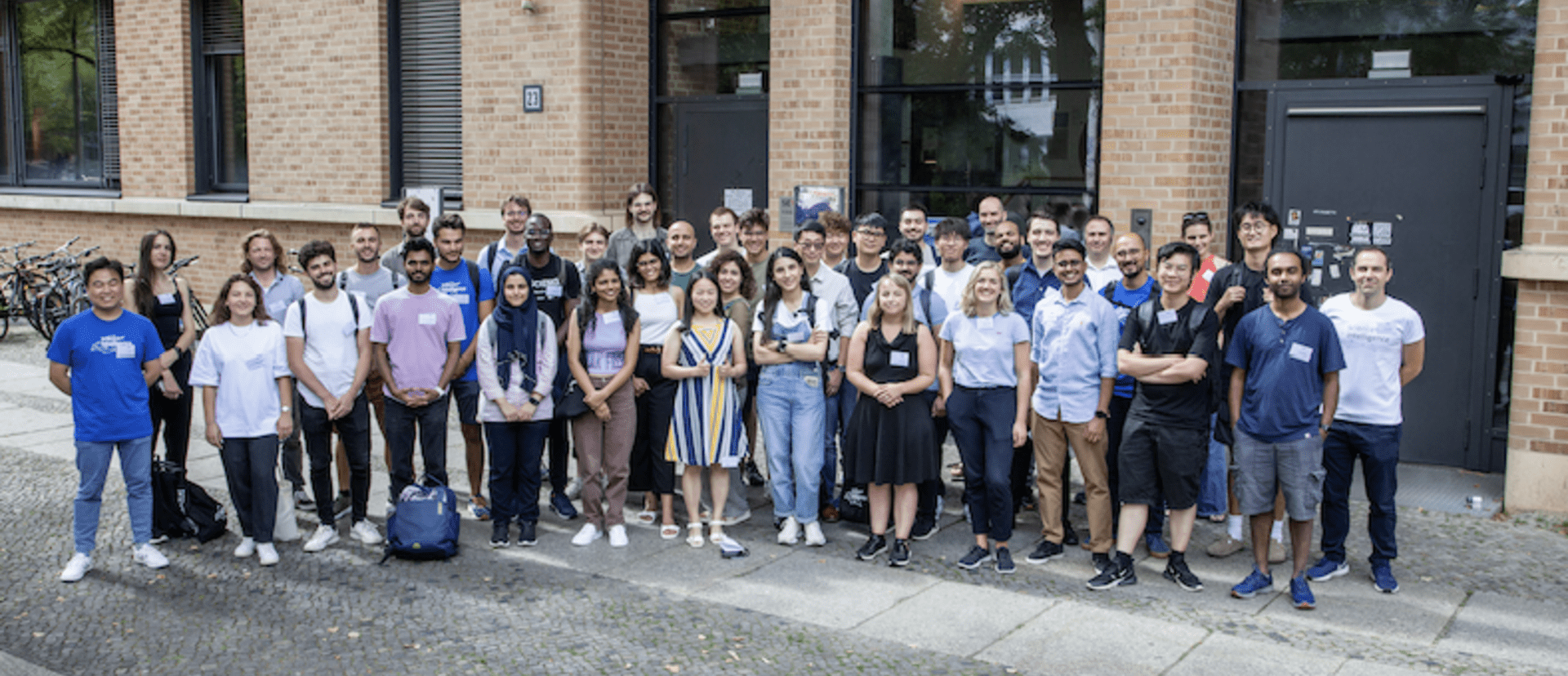It’s a wrap! The SCIoI & ISAB Summer School 2023 was a success
We are very happy to report that our very first summer school was a great success! Offered jointly by SCIoI and the International Society of Adaptive Behavior (ISAB), the SCIoI & ISAB Summer School was held at MAR from 21–25 August, focusing on the theme of “Embodied Intelligence – Perception and Learning in Nature and Robotics”. ISAB is a UK-based institution that encourages learning and advanced studies related to adaptive behavior in animals, software agents, and robots, and SCIoI is very excited about this collaboration.
The week-long event was organized by our members Pia Bideau, David Bierbach, Wolfgang Hönig (TU), and Konstantin Olschofsky, and offered 35 PhDs and PostDocs from twelve countries a unique platform to dive into the topics of intelligence research and adaptive behavior. Lectures centered on the exploration of efficient AI for both individual artificial agents and collective teams. With a focus on sustainable robot perception and learning, the school aimed to examine biologically intelligent systems, providing attendees with new insights and solutions. The summer school’s aim was to equip researchers with the tools to understand and face the challenges of efficient AI.
Participants had the privilege to engage with an array of lectures hosted by SCIoI members and guest speakers from around the world. These sessions were complemented by interactive tutorials, spotlight talks, and a poster session organized by Aravind Battaje, Vito Mengers and Mohsen Raoufi. Hands-on experiences as well as social activities that allowed attendees to engage with Berlin’s vibrant cityscape fostered a holistic learning experience.
“It was very inspiring to be around so many great speakers from so many different fields” said SCIoI member Mohsen Raoufi, who was involved in the planning of the poster session. “Summer Schools like this one are a great opportunity for students to build their AI network with a diverse range of scientists and a way for them to find the potential path to pursue in their career.”
This initiative was designed not only as a nurturing ground for promoting research, but also as an opportunity for promoting a more efficient and responsible generation of scientists of intelligence.





